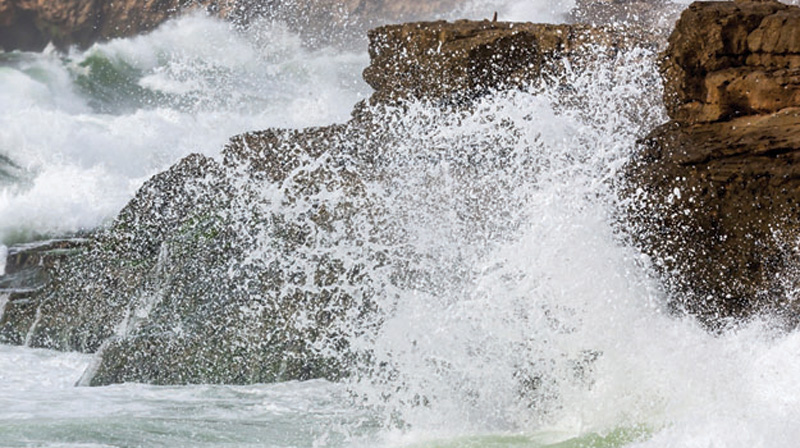

Otis Redding and most of his backing band, the Bar Kays, were tragically killed in an aircraft crash in 1967. However, they live on through the mellow, soulful sounds of his dual Grammy Award-winning ‘Dock of the Bay,’ released in 1968. It is a musical masterpiece that, despite its pace and lightness, has a melancholic flavour to it. I always see it as an ode to reflection, patience, wisdom, maybe tinged with regret, but since I first heard it, I have fallen under its spell, every time.
And no more does it reach out to me than on the many fisherman’s beaches, and on docks of the Sultanate’s ports, wherever the elders of the fishing fraternity may fiddle with fishing lines, fishnets, and tinker with engines, but always with a smile and a pot of kahwa nearby. The chilled-out melody, the lyrics, and the words that seem to come all the way from Redding’s own soul, to reach out from beyond the grave. The strings, percussion, and brass effortlessly complement Redding’s vocals, and you can almost feel the laughter, the benign passion, as he sings with an ecstatic fragility. The sound of the waves breaking gently on the shore, the seagulls’ plaintive calls, the artful subtleties of Steve Cooper’s production, have made ‘the dock’ iconic.
The first verse: “Sittin’ in the mornin’ sun, I’ll be sittin’ when the evenin’ comes watching the ships roll in, then I watch ‘em roll away again. Yeah, I’m sittin’ on the dock of the bay, watchin’ the tide roll away, wastin’ time,” just catches so immaculately I feel, the relaxed demeanour of these old-timers, as they sit, just happy in each other’s company, sharing it seems, unspoken memories of yesteryear, of big fish, small fish, many fish and no fish, of fishing techniques and favourite fishing spots never revealed but to sons and grandsons, after all, you have to have an edge don’t you? It’s this canny awareness, this knowledge, this appreciation of shared risks, of a lifetime and a lifestyle that defies logic in some ways.
And the third verse captures a different mood if we take the words literally, but me, I’m into interpretation, and I see, “Sittin’ here restin’ my bones, and this loneliness won’t leave me alone. It’s two thousand miles I roamed just to make this dock my home. Now, I’m just sittin’ at the dock of the bay, wastin’ time.” These elderly artisans are sitting resting their bones, but in terms of them being a parable of the song, they aren’t lonely, they just pine for the sea. For them, it must be more frustrating than anything, to sit virtually on the sea, but not be youthful, active, or young enough to handle the demands of the fisherman’s days, but they will not relinquish the briny tang of the ocean, and nor should they. They have done their time, their two thousand miles and then some, so they are entitled to waste some time.
You go to the sea each day with excitement, expectation, high hopes, and as an artisanal fisherman, you are doing it all on knowledge, experience, and nous, all your own. Since you first went to sea as a tabula rasa, a clean slate, untouched by experience, you have accumulated an immeasurable piscary wealth. You have been there, seen it all, and done it all. You have been challenged by the sea, for the sea detests restraint, and a smooth sea never made a skilled sailor. You have crossed swords with its denizens, and few have gone to sea and not known fear, few have been plucked by the sea, and plucked from the sea, so knowing its strength and its compassion. The sea is incredibly unforgiving, yet to those who respect it, a lifelong passion.
Maybe, as John F Kennedy said, “We are of the sea, and whether we come to sea or to sail – we will return from where we came.” Maybe also, to sit on the dock of the bay, is to bask a little and to reflect on a life well-lived, and to regret little more than “the ones that got away.” So rest your weary bones, watch the waves roll in, and waste as much time as you like.
PHOTO BY LENA PETERSEN
Oman Observer is now on the WhatsApp channel. Click here



